
Over the course of the 2025 Easter long weekend, more than 112,000 people walked through the gates of what was meant to be the final Byron Bay Bluesfest. Tickets all but sold out, camping so popular it needed a few footy fields worth of overflow, while shuttle buses and onsite parking were all sold out too. According to festival organisers, it was the highest attendance of any Australian festival since COVID, and the third-largest in Bluesfest history.
“It was electric,” says music veteran Nicky Bomba, who has played Bluesfest more than most, and attributes some of his success to the exposure the festival has given him. “It’s 100 per cent that gig where you know the record labels are there, the connection with the audience is fantastic and there’s this escalating buzz with your band.”
Over the years, Bomba has blitzed Bluesfest stages with Bomba, Bustamento, John Butler Trio and, more recently, leading the 26-piece outfit Melbourne Ska Orchestra. He has received recording contracts here, played alongside Elvis Costello and watched as thousands of punters danced to his music. “It’s iconic and one of the biggest recognised festivals in the country.”
But 2025’s record numbers feel worlds away from what unfolded less than a year ago. Last August, one week before the lineup was announced, festival director Peter Noble said the 2025 event would be Bluesfest’s swan song. It was a blow to music lovers who had revelled in the four-day event for 35 years. It was also telling of an industry in trouble, one which had already lost fellow festivals Splendour in the Grass, Groovin the Moo and Falls Festival.
Then, in December, Noble did a U-turn. For some festival-goers, the announcement felt like a betrayal. Didn’t they part with their cash to partake in the farewell narrative that was sold to them? But, as Noble had hoped, the NSW government had sprung into action. There was guaranteed monetary support for organisers. Green shoots emerged as Bluesfest bounced back with promising ticket sales and a safety net. One 29-year-old music lover I met at the festival had travelled all the way from Switzerland to be here. “The vibe was beautiful and the lineup was so good,” Swiss native Janine Wenger beamed.
A strong lineup is Bluesfest’s superpower. Since its inception in 1990, Noble has been able to book the genre’s biggest international acts, like BB King, Bob Dylan, James Brown and Joss Stone. The idea behind his big picture thinking is to entice the industry’s most prestigious names, sell tickets, put on an unmissable show, then create an audience for the lesser-known Aussie acts.
It’s an approach that, time and again, has proven successful. The second superpower of Bluesfest is artist discovery. “It used to be the way that you’d wait for a lineup to be released before buying festival tickets,” says Kathryn Crissman, a 56-year-old die-hard Bluesfest fan who has been coming since 2000. “But not anymore, not for Bluesfest. There’s no such thing as a bad Bluesfest lineup.”
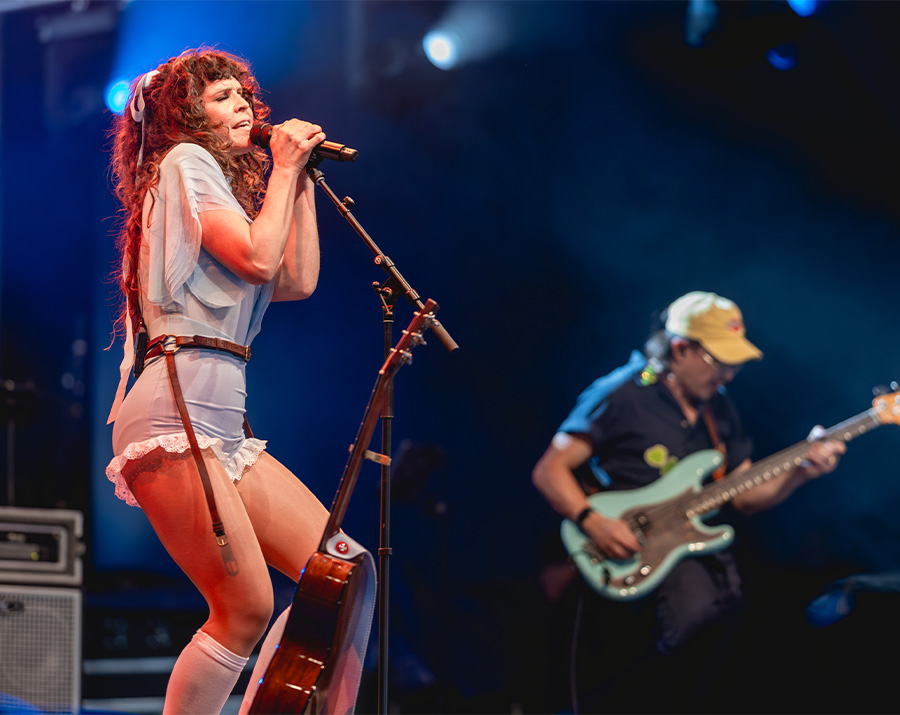
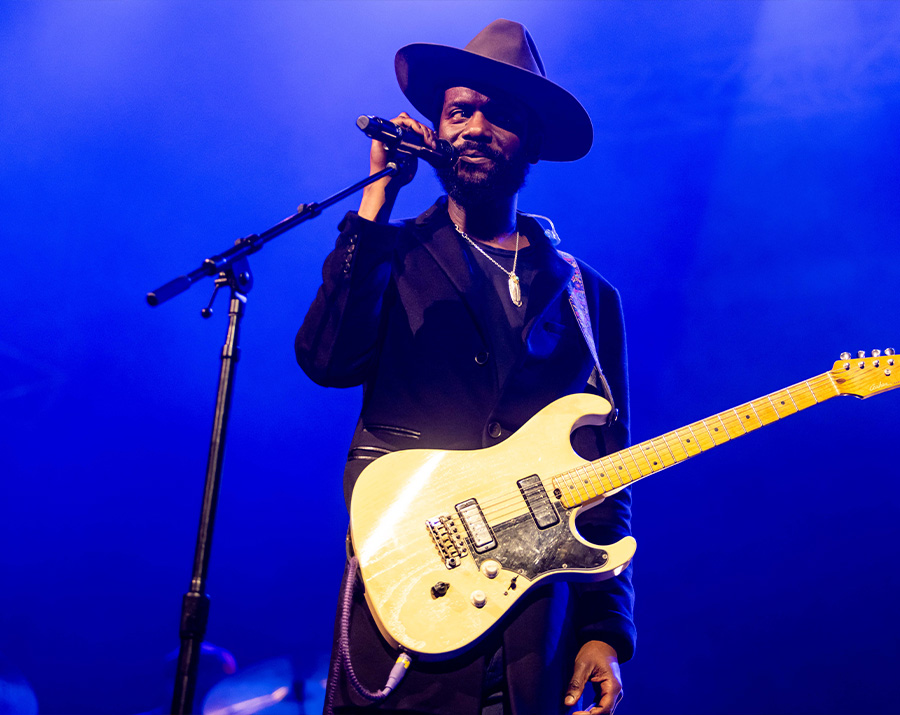
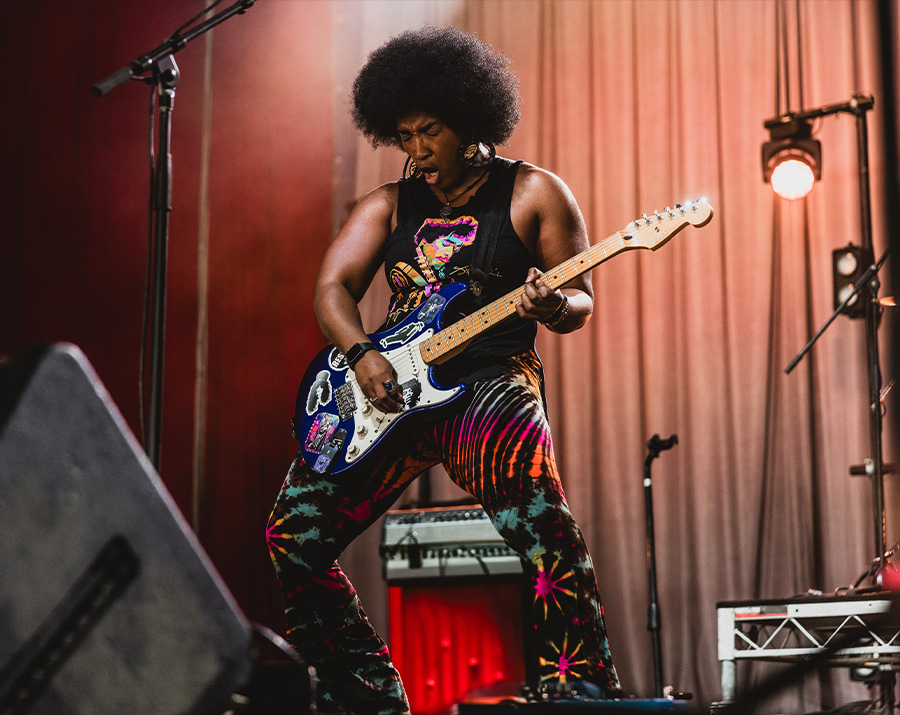
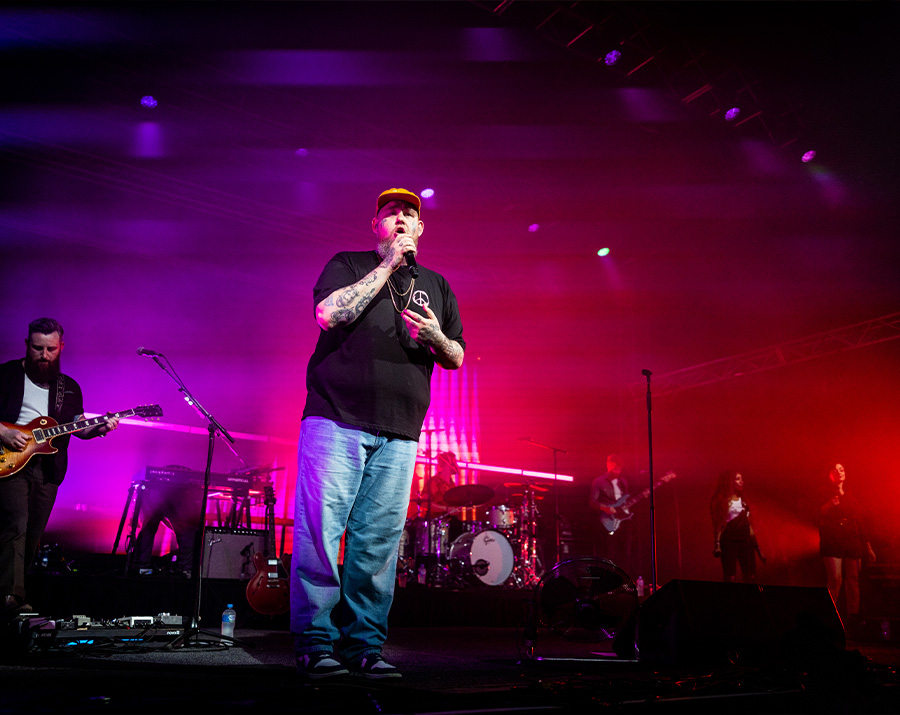
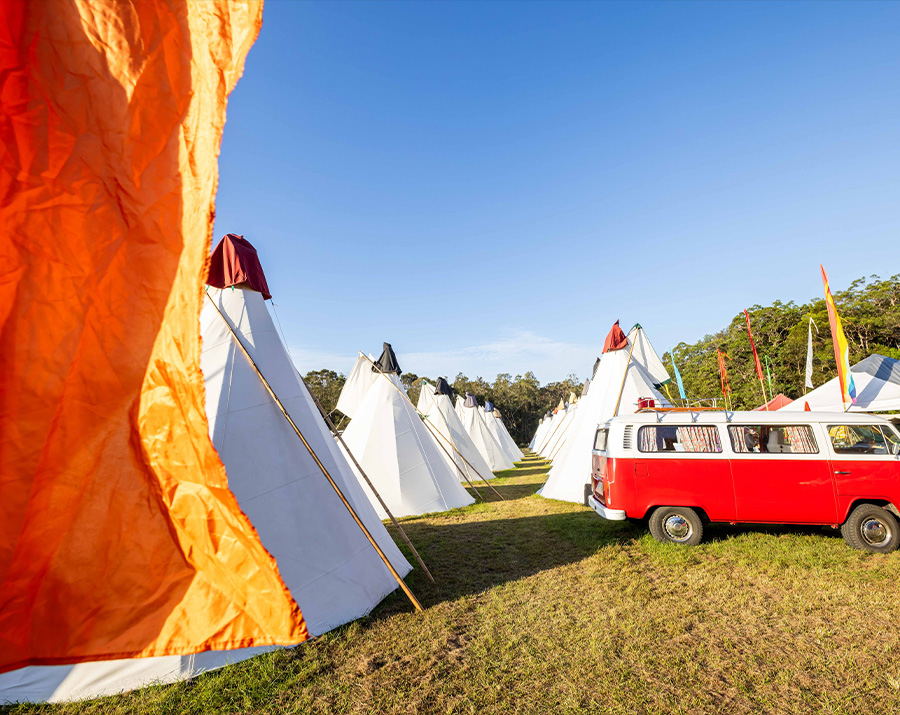
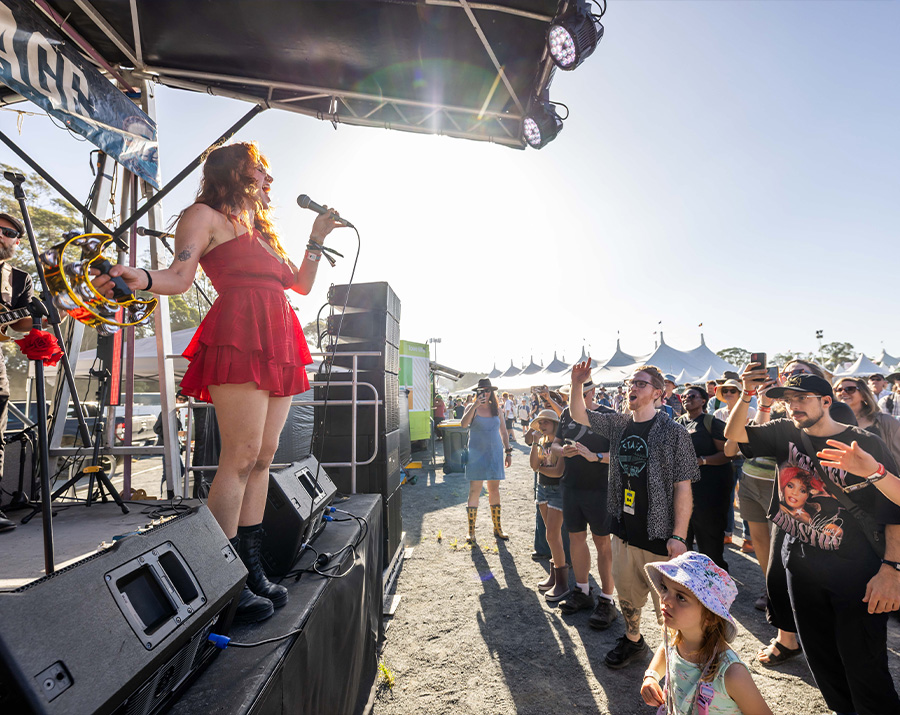
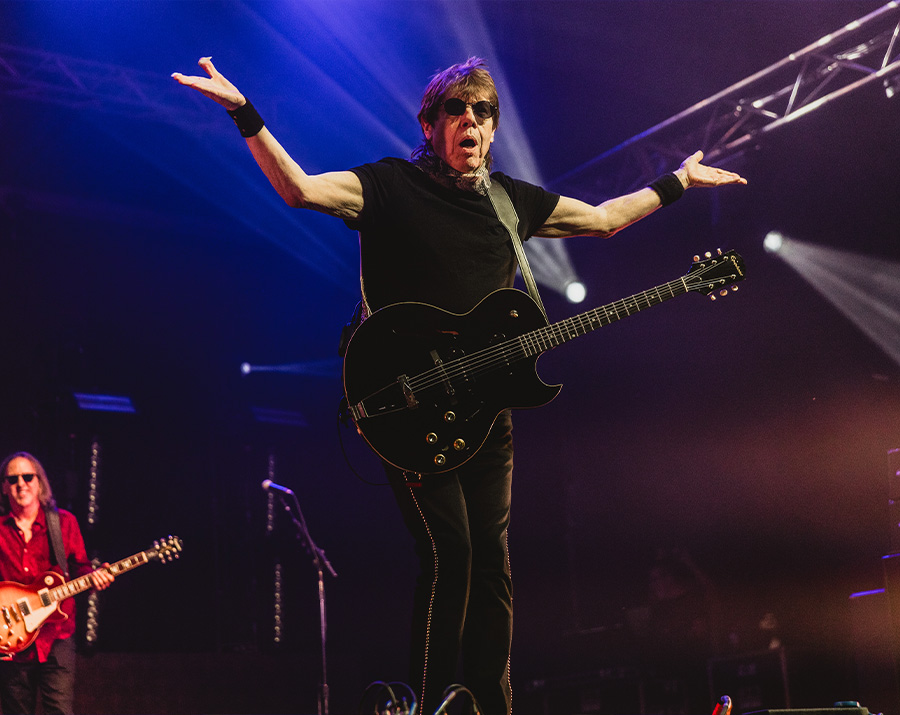
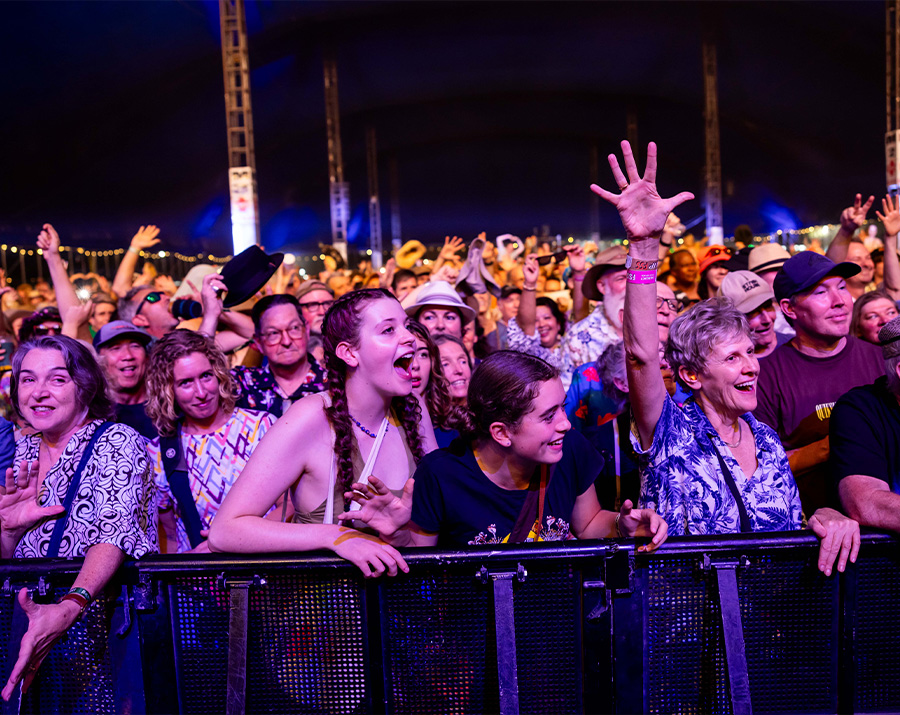
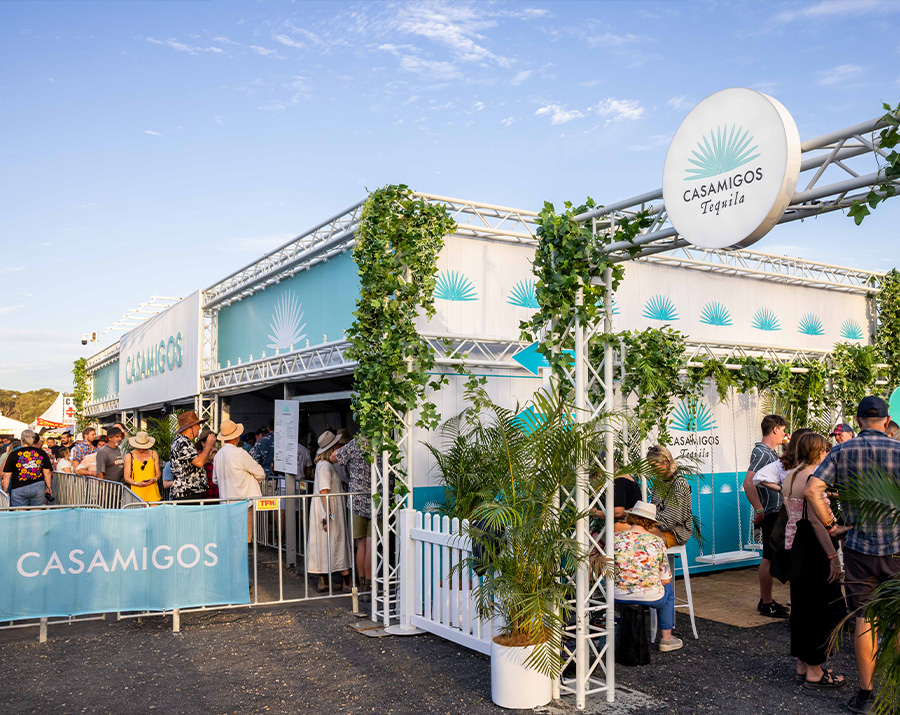
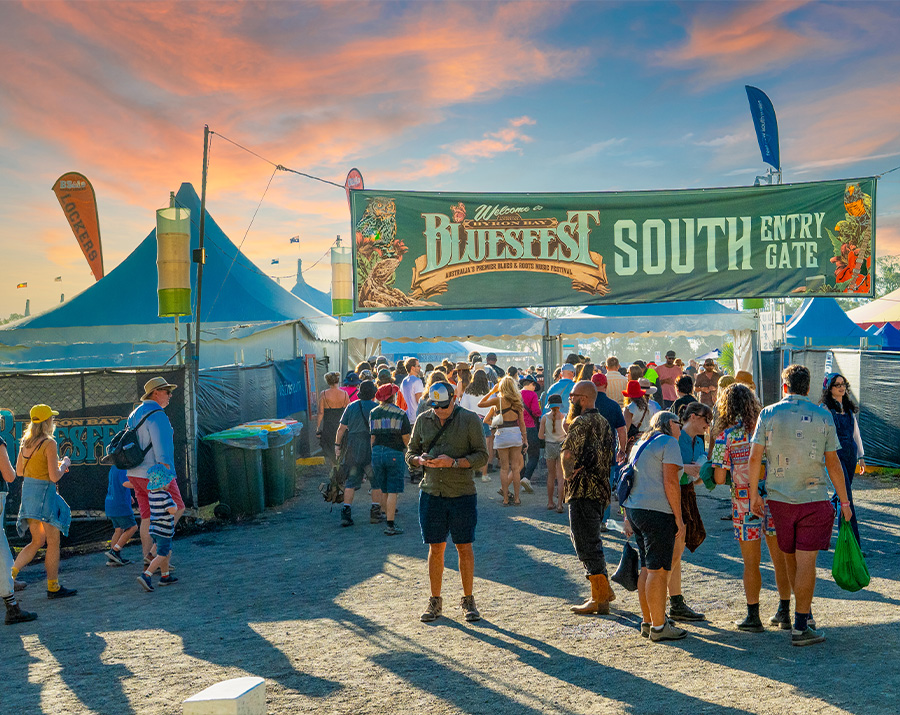
When surveying the punters on their favourite discovery this year, the name Roshani keeps popping up. Blues act Roshani Priddis relies on Bluesfest as her annual musical pilgrimage and a platform for finding new audiences. “My main hurdle is exposure,” Priddis says. “But here we have 100,000 people coming through the gates, and you’ve got the chance to have 4000 to 5000 people to play to, two or three times over the weekend.”
Interestingly, Priddis’s journey here began by busking outside the festival gates (unauthorised) with her now-husband Tim Everett. In later years, the duo took part in the festival’s official busking competition — an initiative which has helped broker the careers of Tones and I, Kim Churchill, and Parcels. But Priddis’s breakthrough came when Noble spotted her busking solo in Sydney. He booked her on the spot. For the four consecutive years since, Roshani has made the bill at Bluesfest.
I catch one of her sets and, even at 1pm, this one-woman powerhouse has several thousand, dusty-from-the-night-before audience members hypnotised by her vocal range and soulful tracks. During her performance, she thanks the crowd for saving Bluesfest, acknowledging that tickets aren’t cheap but celebrating music and the arts is what it’s all about.
“Peter has developed Bluesfest from the grass roots,” she says. “He has built this independent festival up to this extraordinary mammoth of a gathering.”
So what landed this stalwart festival in such hot water in the first place? Even pre-COVID, threats to the live music industry lingered on the horizon. Under the Berejiklian Government, the Festival Act was brought into play in 2019 as an attempt to create safer events. However, in reality the legislation ramped up overheads, particularly the mandatory costs of state-provided police and ambulance services. Then COVID, severe weather, economic inflation and astronomical insurance costs compounded the problem.
According to the Australian Festival Association’s managing director, Olly Arkins, it obliterated a usually jam-packed run of Aussie summer festivals. This starved audiences of unique in-person experiences and affected the livelihoods of artists, creative workers and music organisations. Economically speaking, it put a dent in the $21.8 billion contribution the wider cultural and creative industries usually contribute to the country’s GDP each year.
It also meant 18 to 25-year-olds missed out on their first live music experience. “They either didn’t receive the exposure and understand the value of live music or were anxious about big crowds,” says Arkins. “This had a huge impact on ticket sales as this age group were previously one of the largest buyers.”
While 18 to 25-year-olds might not be the target demographic for Bluesfest, Arkin says the event is integral in laying the foundations for future ticket sales. “It’s a family-friendly event, so parents take kids. This then creates the flow of exposure for young people.”
It’s an all-ages event and I spot plenty of next-gen festival-goers darting around, which is promising. Some are happy to bop behind parents from stage to stage, others lead the charge and shout encouragement over their shoulder to trailing grown-ups.
A few acts in particular draw plenty of Gen Zers, including a fast, ferocious and commanding set from First Nations artist Miss Kaninna and the sultry, rhythmic beats delivered by Grammy-nominated Cuban funk act Cimafunk. Meanwhile, Eric Stang, who covers classics like ‘Gimme Some Lovin’’ and ‘Great Balls of Fire’, has young families grooving. In between sets I spot the festival’s knee-high contingent in line for snow cones or corralling parents toward the kid’s club. The tweens and teens can be found keeping the bubble tea makers busy.
As a child raised on a similar diet of cultural festivals and live music, I’m testament to the effectiveness of such an upbringing. Consequently, my late teens and early twenties were spent scraping together cash for one gig or another, or cleaning portable toilets at festivals in sweltering Queensland summers just to score a volunteer pass. For Bluesfest 2025, giving Aussie audiences the chance to see Rag’n’Bone Man, Toto, Chaka Khan, Vance Joy and Missy Higgins across four days seems well worth it.
Regrettably, this year’s sold-out crowds see me miss getting anywhere near the main tent to catch John Butler, Missy and Chaka Khan on the last evening. It’s a common grievance that has led many longtime fans to stop attending the event. But I let the spirit of discovery take me to see C.W. Stoneking and Taj Farrant instead.
And as the festival draws to a close, I receive a notification: Bluesfest 2026 pre-early-bird tickets are now on sale and I have until midnight to snatch up the deal. It’s a ploy to use the melancholy of another event nearly done and dusted as a potential sales driver. After witnessing Bluesfest’s supposed funeral turn into a resurrection, clicking ‘buy’ on 2026 tickets doesn’t feel like giving in to a con. It feels like investing in an industry that gives us so much and deserves help in securing its future.